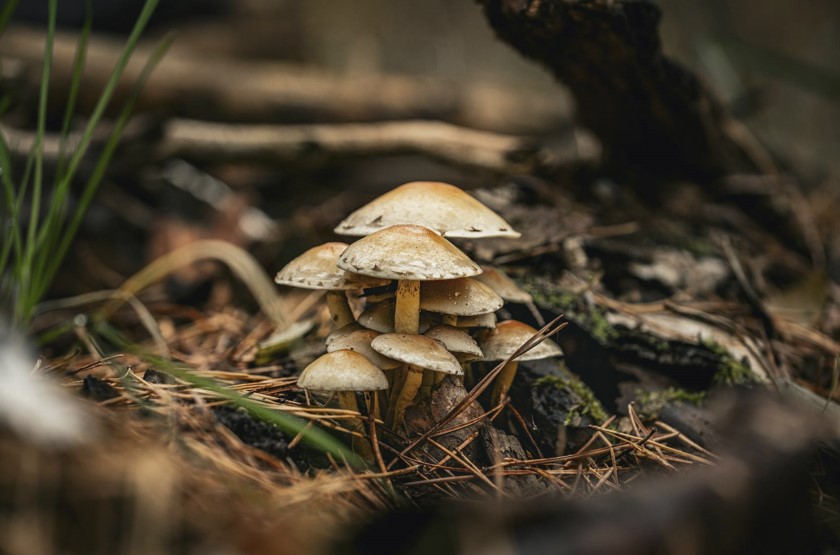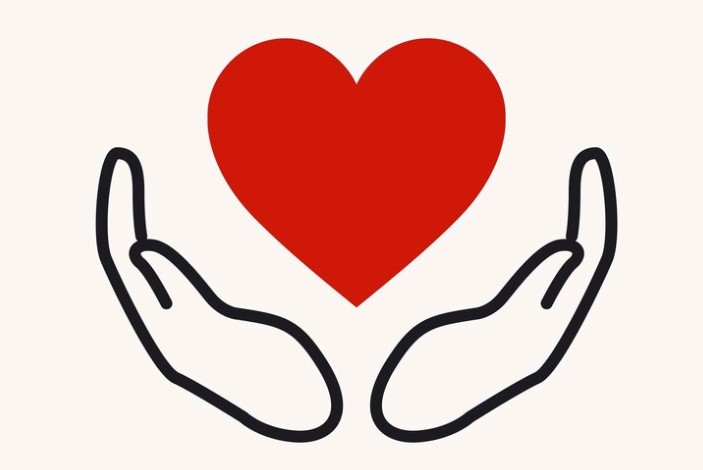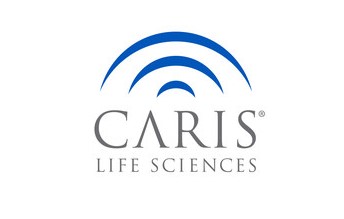
Obsessive-Compulsive Disorder or OCD and anxiety are distinct mental health conditions, but an individual can experience both simultaneously, potentially worsened by stress and anxiety. Sufferers of this condition usually experience a significant impact on their quality of life, as the disorder can interfere with daily activities, relationships, and overall well-being.
A growing number of individuals with OCD are exploring alternative treatment options, looking to buy shrooms online as a potential avenue for managing their symptoms.
Key Takeaways:
-
OCD and anxiety are two different conditions but can coexist in individuals.
-
The condition has various adverse effects on the quality of life of sufferers.
-
More people with OCD are considering the use of alternative treatments like magic mushrooms.
Obsessive-Compulsive Disorder (OCD)
OCD is an anxiety condition characterized by two components: obsessions and compulsions. For instance, constantly checking household appliances before leaving due to the fear of a fire outbreak represents the obsession (worry). In contrast, the act of repeatedly checking the appliances is a compulsion.
Symptoms
Symptoms of OCD can differ widely from one person to another. Examples of obsessions and compulsions are commonly associated with the disorder:
Obsessions
Obsessions consist of recurring unwanted thoughts, ideas, images, or impulses that cause distress.
-
Fear of unintentionally causing harm to oneself or others.
-
Feeling guilty or fearing making mistakes.
-
Fear of germs and contamination leading to harm.
Compulsions
Compulsions are repetitive behaviours, rituals, or mental acts performed to alleviate the anxiety triggered by the obsessions.
-
Excessive checking behaviors
-
Repeating tasks or checking for mistakes
-
Needing to order or arrange objects in a particular way
OCD Statistics
Stigma and shame surrounding OCD have hindered help-seeking and disclosure, making it difficult to determine the disorder's prevalence. While it was once considered rare, current estimates provide:
-
Approximately 1-2% of the population will experience OCD at some point in their lives.
-
Certain groups, such as young males, are more likely to develop OCD in their youth.
-
By adulthood, women are slightly more affected than men.
-
About 65% of people with OCD develop symptoms before the age of 25.
-
Only 15% develop symptoms after the age of 35.
-
Approximately 1% of the Canadian population will experience an episode of OCD.
Current Treatments of OCD
1. Cognitive-behavioural Therapy (CBT)
CBT, delivered by mental health professionals, identifies obsessions and compulsions, challenges unhealthy thoughts, and develops coping strategies. About 75% of individuals see reduced OCD symptoms. Gradual exposure and resistance building are important. CBT offers short-term treatment with long-term benefits.
Since the early 1970s, behavioural therapy has proven to be the most effective treatment for most types of OCD. It involves exposure to triggering situations and preventing compulsive behaviours (response prevention). Studies indicate that 76% of individuals who complete treatment (13-20 sessions) experience significant and lasting reductions in obsessive and compulsive symptoms.
Behaviour therapy usually leads to more significant and longer-lasting improvements than other treatments like medication. However, due to the effectiveness of psychological treatment alone, combining behaviour therapy and medication may provide little advantages.
However, up to 20% of people with OCD may refuse or drop out of behaviour therapy due to discomfort associated with exposure to fearful situations.
2. Medications
Healthcare professionals usually recommend medications like SSRIs, anti-anxiety, and antipsychotics for OCD symptom relief. While no specific OCD medication exists, various types of medications can offer relief for different symptoms.
Psychedelics As a Treatment for OCD
Psychedelics
In a study conducted by the Paris Brain Institute and published in the journal Scientific Reports, researchers retrospectively analyzed the experiences of individuals with OCD who had previously used psychedelics. The findings have shown that 30% reported relief from their symptoms, including reduced anxiety, obsessive thoughts, and avoidance behaviours.
Psilocybin
Lifespan's Psilocybin for OCD Research Program, funded by a $450,000 grant from the Gruben Charitable Foundation, aims to investigate the efficacy of Psilocybin for treatment-resistant OCD over a five-year pilot study.
The study will also explore Psilocybin-induced changes using EEG measurements of brain wave activity. Psilocybin's potential therapeutic benefits in OCD became popular because of its success in treating depression and anxiety, as demonstrated in studies from the Johns Hopkins University School of Medicine.
MDMA
A groundbreaking development in OCD treatment is Psychedelic-Assisted Therapy, employing substances like Psilocybin and MDMA in a controlled setting. MDMA may alleviate OCD symptoms by modulating specific brain circuits. Early studies indicate substantial improvements in OCD symptoms and overall well-being. Psilocybin interacts with the brain's serotonin receptors, potentially influencing specific regions linked to OCD.
Psilocybin Magic Shrooms
Recent research by Dr. Francisco Moreno and colleagues indicates that Psilocybin, the active compound in "magic" mushrooms, interacts with serotonin receptors in brain regions related to OCD symptoms. EEG images show that individuals with OCD have above-average ERN brainwave patterns associated with rumination. Psilocybin demonstrates the ability to reduce this brain overactivity and diminish the overly scrutinizing tendencies of OCD. It is also associated with increased neural plasticity and strengthening of neural connectivity.
How It Works
-
Multiple doses of Psilocybin may alter serotonin receptor binding activity, leading to a reduction in symptoms.
-
Psilocybin may alleviate doubts and rumination, which are necessary elements of obsessions in OCD.
-
Psilocybin shows promise in altering brain functional connectivity, specifically in the Default Mode Network (DMN) associated with self-referential thinking.
-
Psychological openness during a psychedelic experience can facilitate insights and attitudes sought in psychotherapy.
Psychedelics From Zoomies Canada
|
Product |
Description |
|---|---|
|
Evoke – Medicinal Mushrooms – Microdose Capsules |
Evoke microdose capsules combine mushroom adaptogens and Psilocybin to enhance mood, creativity, productivity, and focus without inducing euphoria. |
|
Euphoria Psychedelics – Skywalker (300mg X 5 Capsules) |
This product combines the enjoyable and exciting aspects of mushrooms with CBD's calming and zen vibes, creating a perfect blend of ingredients. |
|
Bright Future – Daily Dose – 3g |
One drop of our organic mushroom mix infused with mushroom adaptogens is all you need to enhance your mood, elevate your mind, and unleash boundless creativity. |
Summing It Up
The effects of magic mushrooms in the treatment of OCD open new possibilities for finding practical solutions beyond conventional approaches.
With the growing body of research on psychedelics and their impact on OCD, the credibility of the potential advantages of these substances in treating the disorder increases.
Zoomies Canada offers a wide range of psychedelic products that cater to your preferences and requirements.
Frequently Asked Questions
Is Psilocybin prescribed for mental health diagnoses?
Preliminary research with Psilocybin has shown promising effects on OCD, major depression, and anxiety/depression related to severe illness. The FDA has given "breakthrough therapy" status to Psilocybin in treatment-resistant depression and major depressive disorder, indicating potential substantial improvement over existing therapies.
Can psychedelics be used as a standalone treatment for OCD?
Using psychedelics solely to treat OCD isn't widely advised due to the disorder's complexity and the need for a comprehensive treatment approach that commonly includes therapy and sometimes medication. Current research on psychedelics for OCD is promising but incomplete, highlighting the need for more understanding of their long-term safety and effectiveness.
What should I consider when seeking psychedelic-assisted therapy for OCD?
-
Look into scientific support for its effectiveness on OCD.
-
Choose licensed therapists trained in psychedelic therapy.
-
Ensure therapy is conducted in a supportive, professional environment.
-
Check if the program includes follow-up sessions to process your experiences.
-
Discuss with a healthcare provider to evaluate risks based on your mental health history.
-
Consult a doctor about any physical health concerns.
-
Have a supportive network for additional emotional support.
-
Consider the financial aspect and accessibility of the therapy.
-
Compare with other OCD treatments to make a well-informed decision.
___________________________________________________
The medical/health information is provided for general informational and educational purposes only and is not a substitute for professional advice. Accordingly, before taking any actions based upon such information, we encourage you to consult with the appropriate professionals. We do not provide any kind of medical/health advice. THE USE OR RELIANCE OF ANY INFORMATIION CONTAINED ON THE SITE IS SOLELY AT YOUR OWN RISK.



